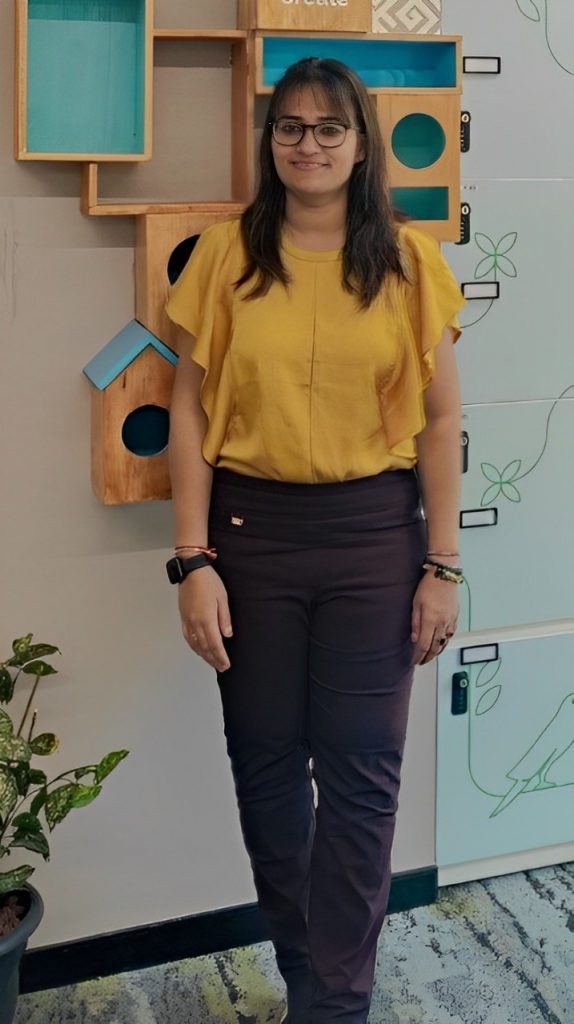This interview has been published by Namrata Singh and The SuperLawyer Team

Can you share the story behind your decision to pursue a career in law? What drew you to specialize in corporate law, mergers and acquisitions, and tech law?
My decision to pursue law was greatly influenced by my father, who was an advocate. From a young age, I was fascinated by how companies operate, who holds control, and how decisions are made. This curiosity sparked my interest in corporate law. As a lawyer, I have always believed that our knowledge should extend beyond a single area of law, and we should continually strive to broaden our understanding.
My tenure with two major IT companies offered me the perfect opportunity to deepen my understanding and gain specialized expertise in IT laws.
You have led some high-value M&A transactions. Can you walk us through one of the most challenging deals you’ve handled and the key takeaways from that experience?
One of the most challenging M&A transactions I handled in the last few years involved a cross-border acquisition that spanned multiple jurisdictions with varying regulatory frameworks. The deal required coordinating extensive due diligence across different time zones, managing compliance with complex local regulations, and aligning the objectives of diverse stakeholders. A key challenge was balancing the legal intricacies with the strategic goals of both the acquiring and acquired company.
The key takeaways from this experience were the importance of conducting thorough due diligence and implementing proactive risk management to address potential regulatory challenges before they escalate. In cross-border deals, it’s also crucial to be sensitive to cultural differences, in addition to navigating various regulatory frameworks. Understanding these nuances can help ensure smoother negotiations and successful deal closures. Balancing both legal and cultural complexities is essential for aligning interests and achieving the strategic goals of the transaction.
You regularly contribute to national publications like the Economic Times. What motivates you to share your insights publicly, and how do you think your contributions have influenced the legal community?
When I contribute to national publications, my primary motivation is to share practical insights and knowledge that can reach a broader audience. Contributing to these platforms also helps me stay informed about emerging legal trends and challenges, fostering my ongoing professional growth. I view these contributions as a way to give back to the legal community, ensuring that valuable knowledge is not confined to closed circles but is shared and applied to drive progress and innovation.
Given your experience as a product attorney for cloud products, what unique legal challenges do you foresee in the rapidly evolving tech industry and how should legal professionals prepare for them?
In the rapidly evolving tech industry, particularly with the rise of cloud computing, several unique legal challenges are emerging. One of the most pressing is data privacy and security. As companies increasingly rely on cloud services, the risk of data breaches and unauthorized access to sensitive information has grown significantly. Legal professionals must navigate a complex landscape of applicable regulations to ensure compliance while safeguarding data.
Another critical challenge is managing cross-border data transfers. Cloud services often operate across multiple jurisdictions, which requires a thorough understanding of international data transfer laws. The varying regulations and standards across different countries add to this complexity, making it essential for legal professionals to stay informed about global legal developments.
Intellectual property (IP) protection is also a key concern. Legal professionals advising product engineering/development teams need to ensure that IP rights are rigorously protected while addressing challenges related to the use of open-source software and licensing agreements.
To effectively prepare for these challenges, legal professionals must develop a deep understanding of technology and its legal implications. This involves staying updated on the latest developments in data privacy, cybersecurity, and IP law, and closely collaborating with technical teams to provide informed and proactive legal guidance.
With nearly two decades of experience, what advice would you give to young lawyers entering the field of corporate law, particularly those interested in M&A and regulatory compliance?
I recommend starting by building a solid foundation before delving into complex deals. A comprehensive understanding of corporate law, corporate structures, contract law, and relevant regulations is essential. This groundwork will equip you to confidently navigate the more intricate aspects of M&A and compliance. Given the constantly evolving legal and regulatory landscape, staying informed about new laws and market trends is equally important. Moreover, attention to detail is paramount in M&A transactions, as even minor errors can lead to significant repercussions. Since M&A deals are inherently complex, it’s vital to have a thorough grasp of all facets of a transaction—beyond just the legal aspects—such as tax and financial considerations, to accurately evaluate its legal impact.
What motivated you to transition from working with multinational corporations to starting your independent legal practice? How different is independent legal practice from working with a corporate?
The motivation to transition from multinational corporations to independent legal practice stemmed from my desire for more autonomy, flexibility, and the ability to work on varied matters. In a corporate role, you are part of a structured team with access to established resources and support systems, and your focus is often aligned with a single organization’s specific business and legal needs. As an independent practitioner, you deal with different clients from different industries and are responsible for managing all aspects of your practice. It requires greater self-reliance, adaptability, and business development skills, but it also offers more autonomy and flexibility in choosing clients and areas of focus.
You began your practice working in corporate roles, then transitioned to law firms, and eventually moved back to the corporate sector. Can you highlight the key differences in working in these two environments? How have your experiences in both segments shaped your approach to legal practice?
My career has provided me with valuable experiences in both law firm and in-house roles, each offering distinct perspectives and challenges that have profoundly influenced my approach to legal practice. In a law firm, the focus is on cultivating deep legal expertise and offering specialized advice to a diverse array of clients and industries. The work is fast-paced, demanding precision, thorough research, and a keen awareness of evolving legal trends.
In in-house roles, the focus shifts from pure legal analysis to a comprehensive understanding of the business context. This involves not just applying the law but also aligning with the company’s goals, risk tolerance, and strategic direction. In-house work requires a pragmatic approach, balancing legal risks with business realities and often involves contributing to boardroom discussions where your legal advice directly influences key business decisions.
The combination of these experiences has provided me with a well-rounded perspective. My law firm background instilled the importance of rigorous legal analysis and staying updated on legal developments, while my in-house experience underscored the need for practical, business-focused legal solutions. These experiences together have honed my ability to offer legal advice that is both sound and strategically aligned with organizational goals.
Outside of your professional life, what personal interests or hobbies do you pursue? How do these activities influence or complement your work as a senior corporate lawyer?
Outside of my professional life, I enjoy baking, travelling, and spending quality time with my daughter. Baking provides a creative outlet and a calming respite from the demands of my legal work. Travelling allows me to step back, reflect, and immerse myself in different cultures, which broadens my perspective and enhances my ability to approach challenges with an open mind. Time with my daughter brings immense happiness and helps me stay grounded, enabling me to manage stress and maintain a healthy work-life balance.
Get in touch with Navaneeta Kanjilal-


























